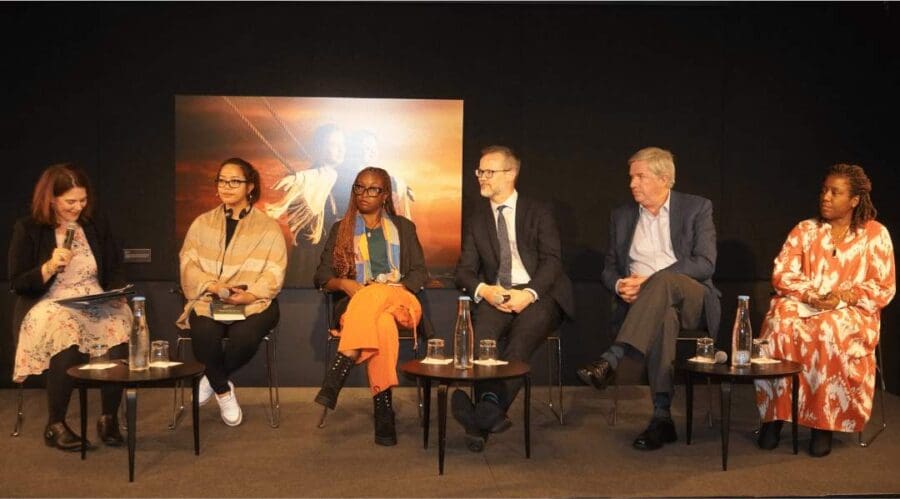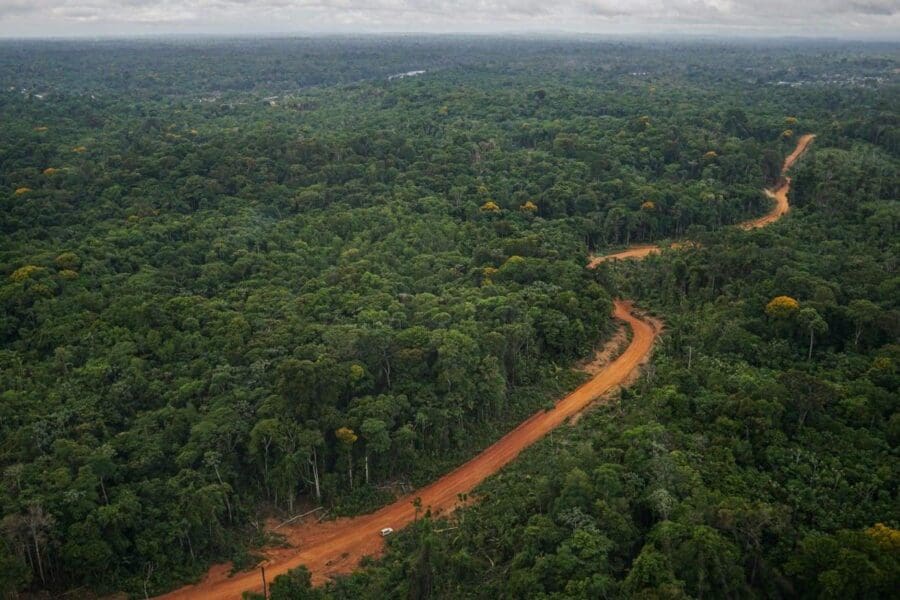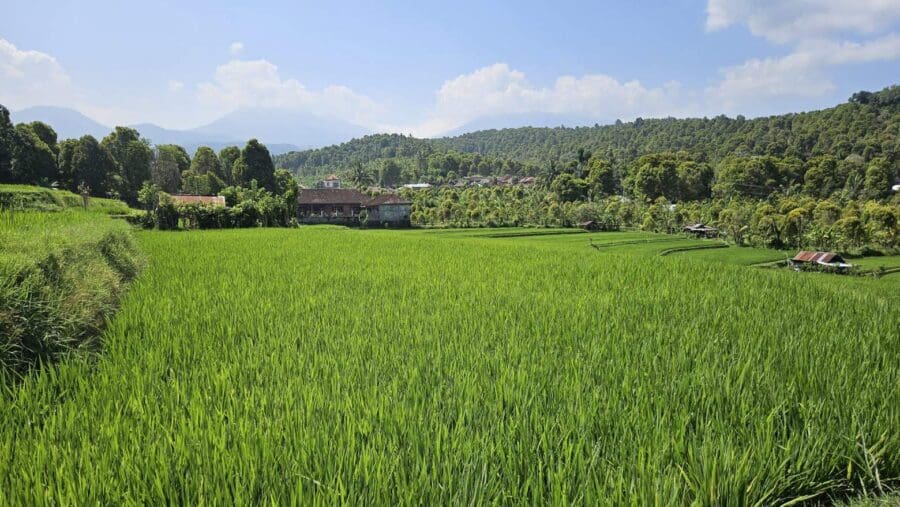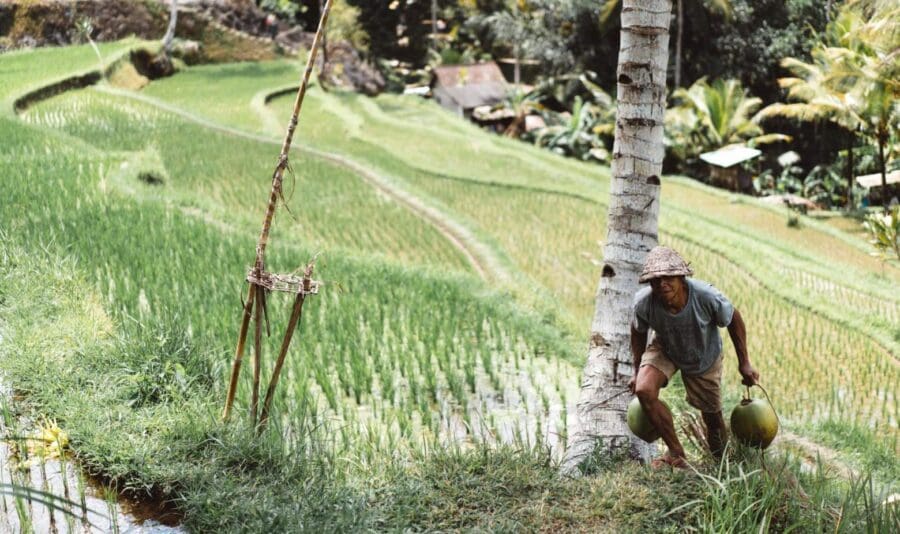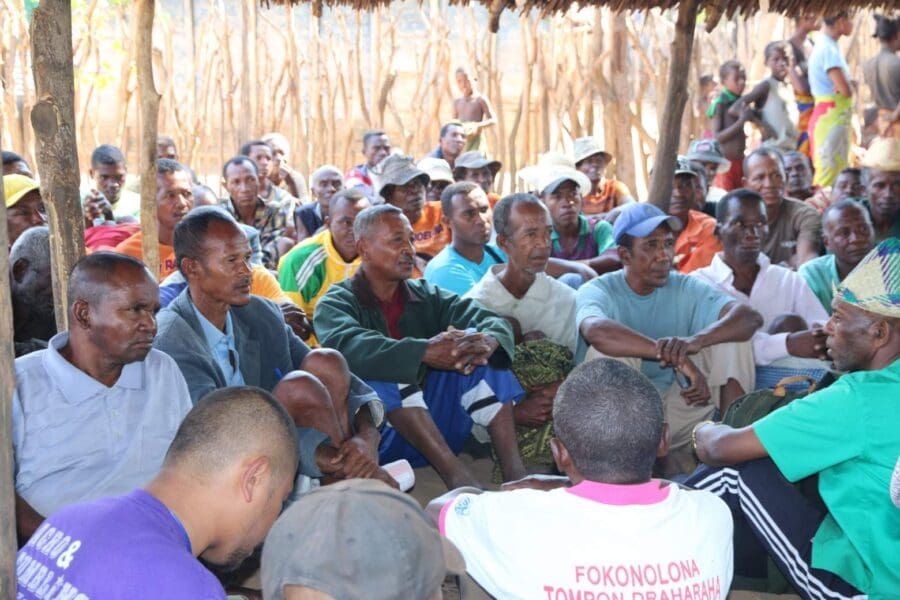After a five-year hiatus, the World Bank held its Land Conference on May 13–17 in Washington, D.C., bringing together over 1,000 practitioners, donors, advocates, civil society representatives, and government officials.
The takeaway was clear: The case for land tenure security as a prerequisite for climate, development, and biodiversity goals has now firmly been made, but many of the same challenges persist in advancing rights-based agendas. This is especially true for Indigenous Peoples, Afro-descendant Peoples, local communities, and the women within them who, despite being the driving force behind rights-based reforms, continue to face threats to their lands, livelihoods, and hard-won rights, and hurdles to accessing direct funding to advance their self-determined priorities.
Recent research from the Rights and Resources Initiative (RRI) highlighted throughout the conference shows that over 100 million hectares of land was recognized as designated for or owned by Indigenous, Afro-descendant, and local communities between 2015 and 2020. This progress, as highlighted by Ward Anseeuw of the Food and Agriculture Organization (FAO) during the Global Land Governance and Policy Forum, comes amidst significant inclusion of land in national policy documents across various sectors during this period, particularly in Sub-Saharan Africa.
However, evidence provided by stakeholders throughout the conference also illustrated that there remains a long way to go in passing, implementing, and reporting on statutory reforms that are gender-sensitive, rights-based, and consider legal frameworks across sectors in a holistic and integrated manner.
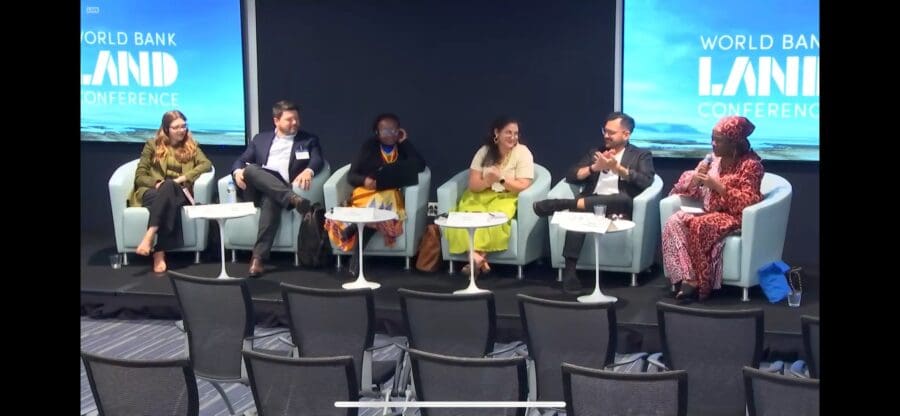
The time for cross-sectoral learning and reform is now
A thematic session on Protecting Tenure Rights: Lessons from Land, Forests, and Fisheries spoke to the need to expand engagement beyond traditional sectoral siloes to reflect realities on the ground. As Srinivasa Srigiri, Senior Researcher at the German Institute of Development and Sustainability, highlighted:
“Of course the sustainability of [freshwater] ecosystems is important to the global community, but as we’ve been hearing repeatedly in this conference, they also hold enormous cultural significance and identity for the Indigenous Peoples and local communities who have been maintaining them. The provision of these regulatory services of ecosystem sustainability which the world puts a high value on is produced as a byproduct to their cultural, religious, and traditional relationships.”
The lessons learned from the land sector through the uptake of the FAO’s Voluntary Guidelines on the Responsible Governance of Tenure (VGGT) in national reform processes provide an opportunity to jumpstart an effective and integrated Dialogue towards Principles for the Responsible Governance of Water Tenure.
“It’s refreshing to be looking at this saying that we’re not starting from scratch. We do actually have a whole body of evidence on the importance of tenure. Yes, water is more complicated; yes, there is more to be understood and it is by no means easy; but we should take solace in the fact that we are building on already a plethora of really exciting work that exists,” emphasized Dan Schuster-Beesley, Deputy Team Leader of Sustainable Water and Food Systems at the Energy, Climate and Environment Directorate of the UK Foreign Commonwealth & Development Office (FCDO).
Indeed, ongoing initiatives such as those by RRI and the Environmental Law Institute (ELI) on Whose Water? and FAO’s KnoWat Country Water Tenure Assessments demonstrate the added value in taking a water tenure approach to reform and implementation processes. This integrated lens can also support tailored approaches to safeguarding the rights of vulnerable groups such as Indigenous Peoples, Afro-descendant Peoples, pastoralists, and women.
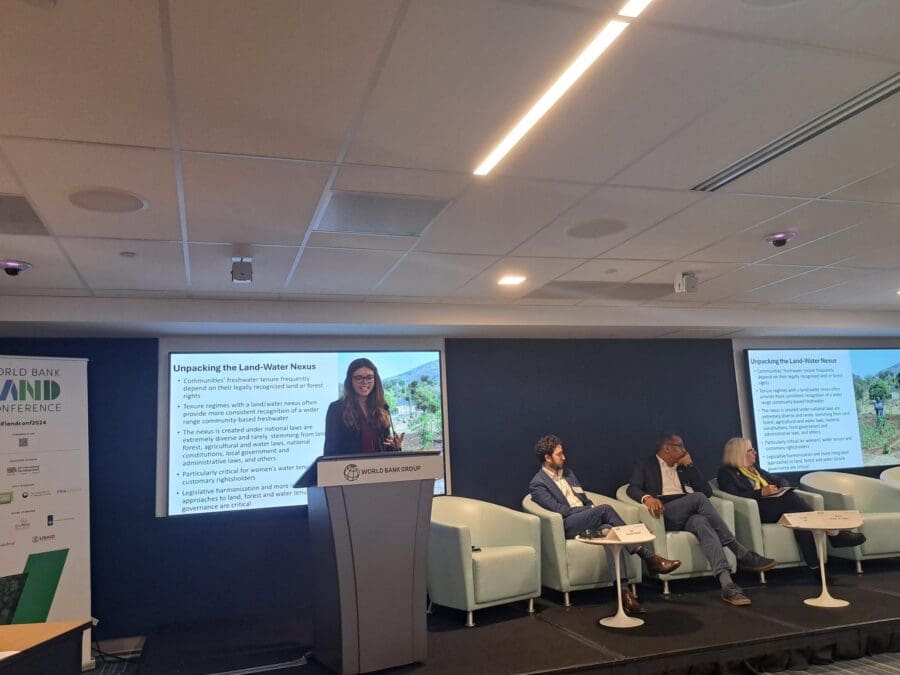
Will donors adapt to meet and exceed their current pledges?
New platforms are providing unprecedented access to information concerning the state of donor funding to support community-based tenure rights. The numbers show that donor funding is increasingly being channeled to communities, but its current scale and modes remain inadequate.
During the conference, Deborah Sanchez, an Indigenous Miskitu leader from Honduras and Director of CLARIFI, RRI’s direct funding mechanism for rightsholder-led organizations, highlighted the gap between the accessibility of available funding and community capacity to access those funds. Samunda Jabini from Suriname’s Association of Saamaka Communities also stressed this gap at a multi-sectoral dialogue co-organized by RRI, Landesa, Forest Trends, Cadasta Foundation, and Land Portal Foundation along the sidelines of the Land Conference. The dialogue focused on the challenges and opportunities in securing land tenure rights to achieve global climate goals.
Jabini highlighted that the oral traditions that would best allow her community to showcase their needs and traditions are typically discounted by donors in grant proposal requirements. “Most of our communities don’t read or write English,” she reminded donors. Another key theme that emerged was the continued need to prioritize gender-sensitive legal reforms, reporting, and financing mechanisms.
“We have a mission and a vision,” voiced Sonia Viveros on behalf of the Women in Global South Alliance (WiGSA). “The vision is that women in their several phases of life…need to be considered as important leaders in conservation, actions for climate, the preservation of knowledge, and in the environment where we work.”
“The lands of IPs, ADPs, and LCs cover more than half of the mass of territories in the world and women are half the population, but the rights of women on those lands, its resources, and their voices in its governance are not being heard,” said Sonia Viveros.
As RRI President and Coordinator Solange Bandiaky-Badji reiterated at a session on Scaling up Climate Finance for Community Rights and Gender Equality, “The funding gap still exists… as we’re talking about the end of the $1.7 billion pledge and hopefully a 2.0 pledge, hopefully with that one there will be a clear dedication to funding women’s organizations.”

All eyes are now on CBD CoP16 this September and the UNFCCC CoP30 in 2025
In parallel to the Land Conference, the Convention on Biological Diversity (CBD)’s Subsidiary Body on Scientific, Technical and Technological Advice met in Nairobi. It agreed to add new headline indicators on land use change and land tenure in the traditional territories of Indigenous Peoples and local communities under Target 22 to “Ensure Participation in Decision-Making and Access to Justice and Information Related to Biodiversity for all.”
Going forward, CoP16 and CoP30 will both offer critical opportunities to solidify and mobilize tangible global support and action toward enhanced tenure security.

